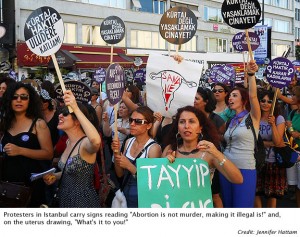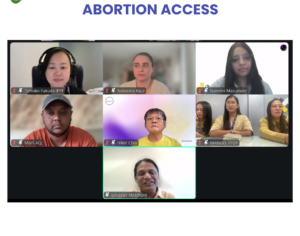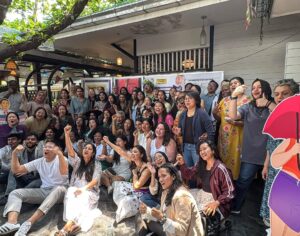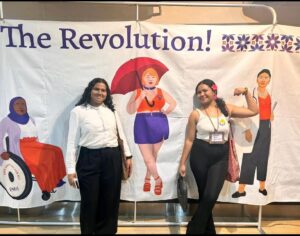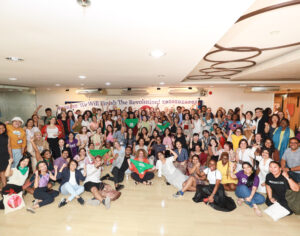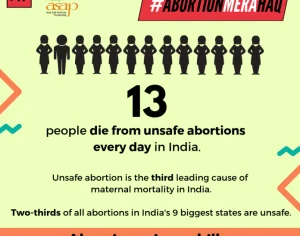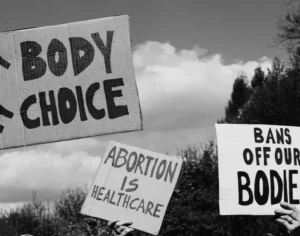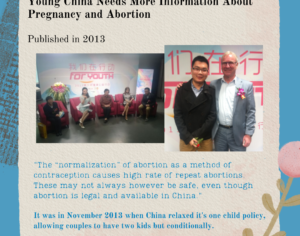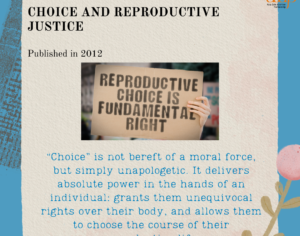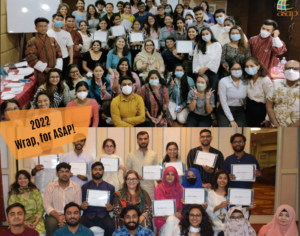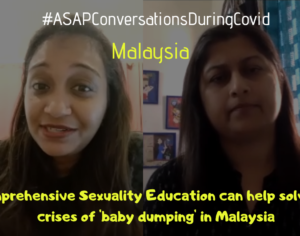Don’t turn the clock back on women’s lives: A Testimonial From Turkey
This week we move on to another topic discussed during the Tweetathon: Attitude Among Providers of Abortion. We decided to republish a testimonial written by Prof. Ayse Akin, a leading practitioner, and women’s rights activist in Turkey, who helped pave the road for abortion rights in her country. We first published this to observe Sept. 28.
September 28, the International Day for the Decriminalization of Abortion is a week away. Organizations and women’s rights activists are gearing up all around the world to protest bans, and ask for abortion to be made legal, accessible and affordable for women around the world.
In Turkey the right to first trimester abortions was granted in the 1980s. But now women are fighting hard not to lose this basic right. Prof. Ayse Akin, a leading care provider, public health specialist and woman’s rights activist from Turkey has written us a testimonial delineating the history of Turkey’s abortion law, and recording her own personal journey as an activist and a provider.
As an obstetrician and gynecologist, and a public health specialist, and more importantly as a woman I have always been concerned about woman’s health and their reproductive rights.
In the mid 1970s, I was responsible for ObGyn services of a University affiliated hospital in a semi-rural area, I was also the head of the hospital. In those years, induced abortion was legally permitted only on medical grounds in Turkey. However despite its illegality, we had thousands and thousands of illegal abortions in the country. Most of those abortions took place in the private clinics at high prices. This meant that people without sufficient money either gave birth to unwanted children, or resorted to “self induced” abortions or “backstreet” abortions. The last two options are equally unsafe and harmful for women’s health and life.
Unfortunately accurate abortion statistics are not available from those years. However, I observed that at least the big hospitals in Ankara received very many cases of abortion related complications, and at least 3-4 women died due to unsafe abortions in these hospitals each month.

In the semi-rural area that I was posted to, 40 kms far from Ankara City center, we treated family planning activities and contraception as a priority; abortion was not permitted. But several women from our area, came to us with severe anemia ( Haemoglobin levels as low as 3 to 5 gms) after having had abortions in privatized city clinics. We had to hospitalize them for days in order to save their lives.
I remember three cases of unsafe abortion clearly. I received all of them within a month’s time, from a neighborhood close to ours, and not directly under our administration. But we were the closest emergency facility to women in this region.
All three women had some common characteristics: they were in their mid thirties, had too many living children and did not want to have any more. All of them had failed to use an effective contraceptive method. All three of them were also poor and could not afford to go to private services to terminate their unwanted pregnancies. Therefore they chose an unsafe method to terminate the unwanted pregnancy: one inserted soap into the uterus, the other used the tip of a matchstick , and the third woman had inserted a sharp instrument into her womb.
When they reached my hospital, all of them were showing signs of multi-organ failure. They had developed jaundice, a sign that the liver was compromised, and all of them were not passing urine, a sign of kidney failure. As a physician it is too difficult to describe what I felt. I was helpless, and unable to do anything to save these women’s lives. I helped alleviate their condition, and immediately sent them by ambulances to a more advanced hospital int he city center. I followed their cases and unfortunately found out that all of them had died only a few days after their admission, despite the vigorous efforts of the hospital staff.
This was a turning point in my career, and I promised myself that I would do everything to save such unnecessary deaths. After that we initiated a series of research with the collaboration of the WHO to demonstrate the effect of unsafe abortion on women’s health as well as cost of illegal abortion on health care services.
In the early 1980s with the leading role of our Ministry of Health, a draft legislation was prepared to legalize abortion on request. It was a daunting task to convince so many people who were opposed to the idea. Scientific research results were extensively used in all advocacy activities,and leadership was the most effective factor for our success. Fortunately our efforst paid off. In 1983 the Population Planning Law was accepted. This new law legalized induced abortion up to 10 weeks of pregnancy on request; trained general practitioners were authorized to terminate early pregnancies, trained nurses and midwives authorized to insert intra uterine devices.
That was a revolutionary legislation and it made a great impact on women’s reproductive health in Turkey. In a few years the prevalence of IUD had doubled, maternal deaths due to unsafe abortion had almost disappeared, and as shown in a a nationwide survey on Maternal Mortality induced abortion was responsible for only 2% of all maternal deaths decreased to 2% (in contrast to the 50% before the law).
I believe these stories not only demonstrate the favorable effect of legalizing abortion, but also the respect to reproductive health & rights of women in Turkey, which should be the duty of the government as emphasized in all international conventions, treaties, agreed documents.
But only 3 months ago all of a sudden our Prime Minister publicly stated his opinion against abortion. All of us who know the history of induced abortion in Turkey were shocked and could not know what to think and what to say. All advocacy activities started all over again but this time we are not fighting to gain something new, but protecting a right that was already granted to us.
We have a proverb in Turkey that says “the rivers cannot be streamed back”. Therefore that unfortunate idea was only “a slip of the tongue of our Prime Minister”. This is my personal opinion. After having been a physician for over 40 years and witnessing all the progress – the failures and successs in women’s health in Turkey I hope women will continue to enjoy their reproductive rights freely.

